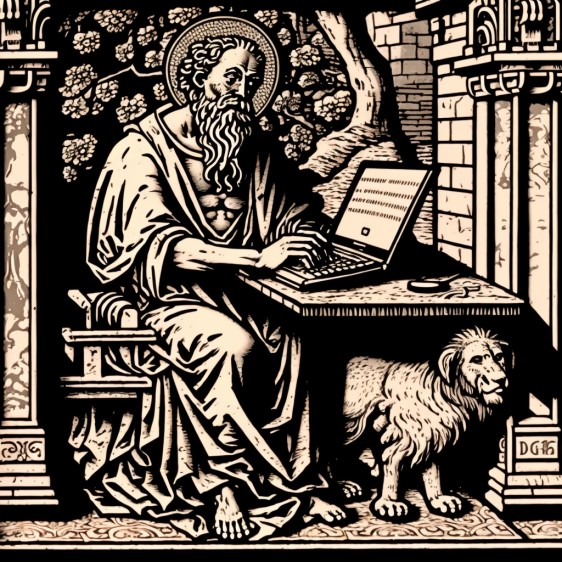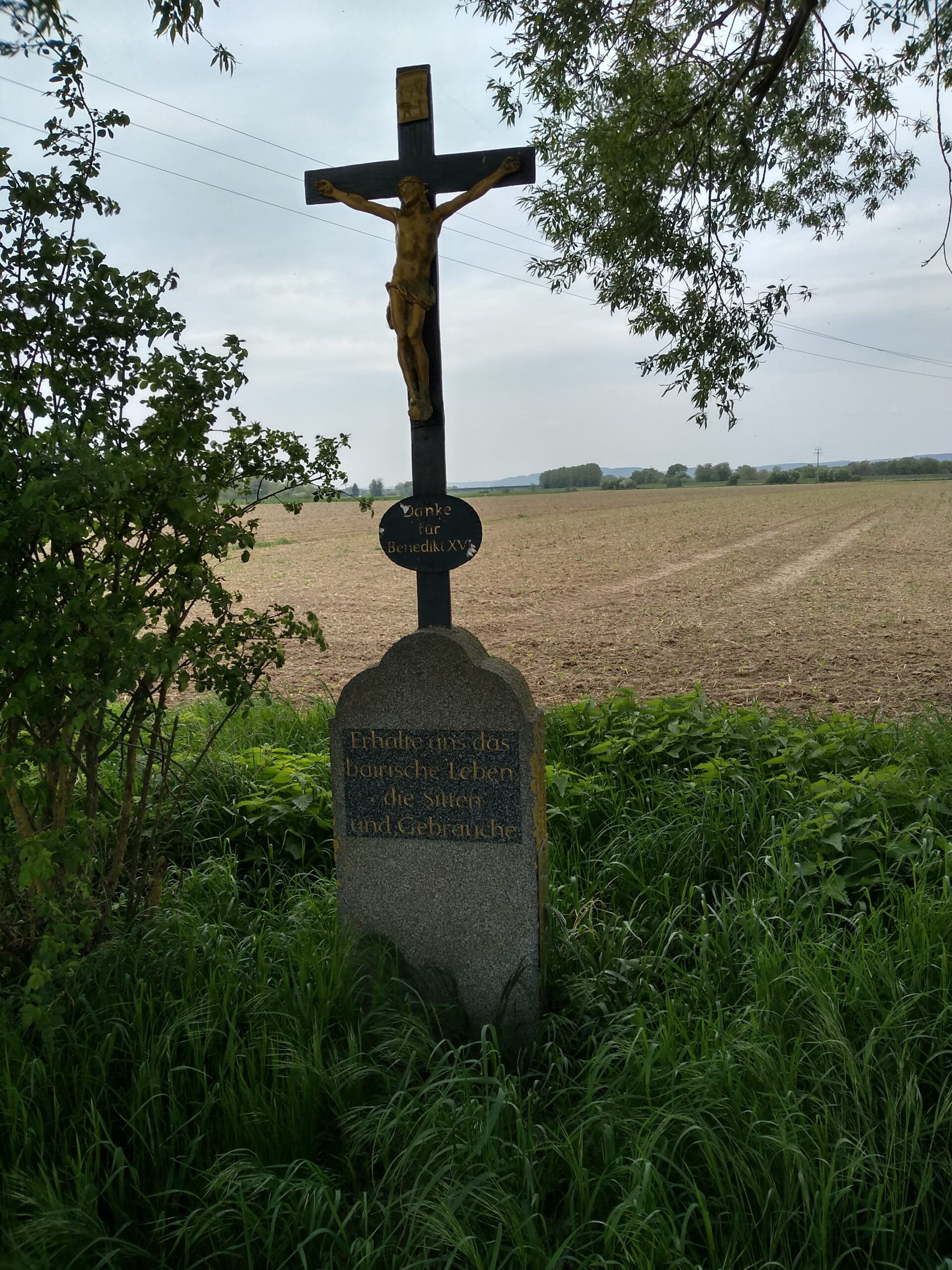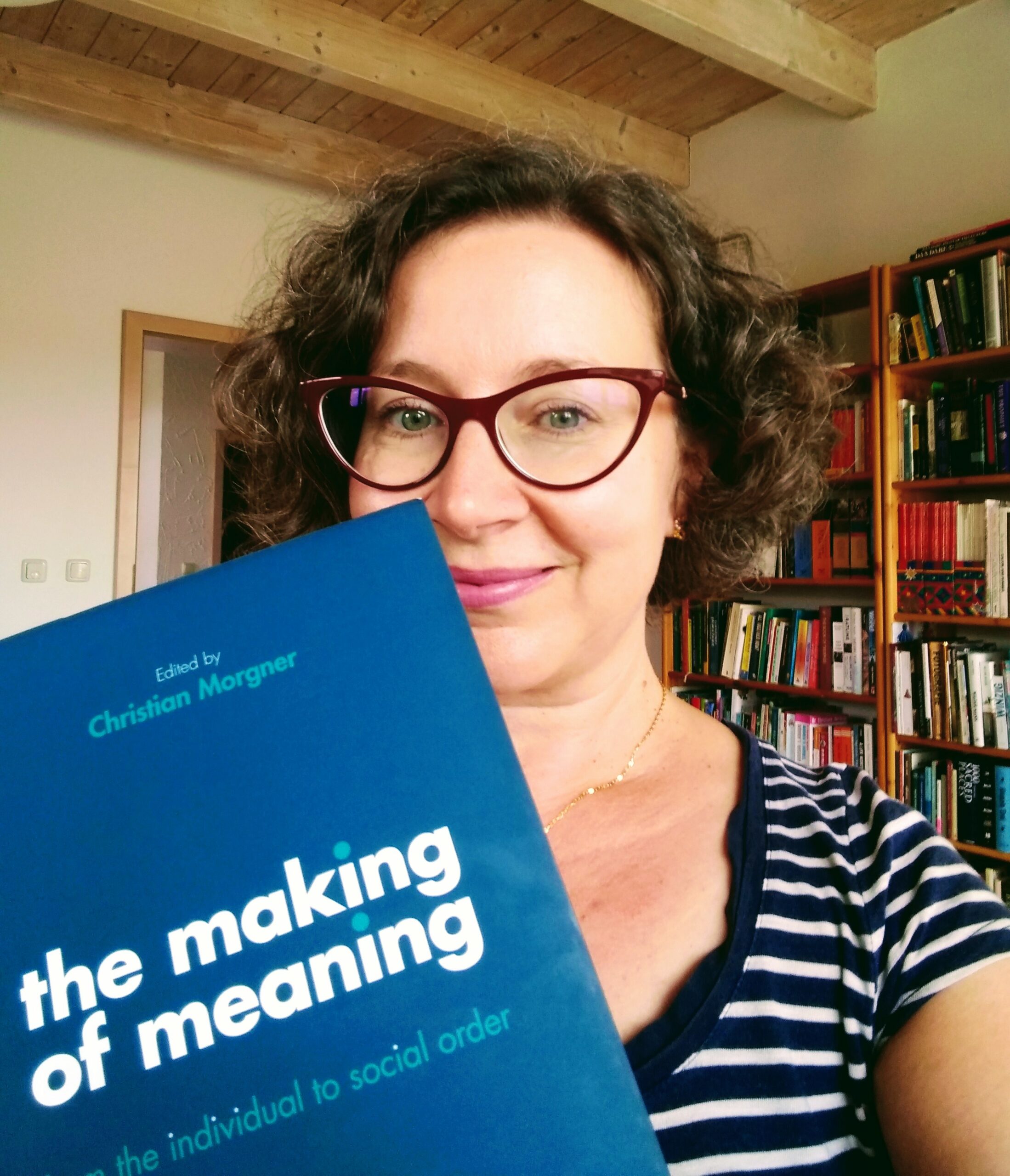I’ve lost count of how many times it’s happened to me – I tell someone…
What do you call twenty nerds in a castle? An academic translation workshop!
One of the delights of being back in Germany has been the ability to take part easily in conferences and workshops held here – no flights necessary, just a train ride! Thrilled at the prospect of meeting colleagues again in person after the pandemic, I signed up for no fewer than three events in May and June. The first of these was a workshop on academic translation held under the auspices of the BDÜ in the gorgeous Ebernburg in the Nahe Valley near Mainz.
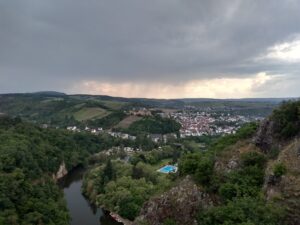
The workshop had originally been scheduled to take place in 2020, but ended up being postponed to this year. It was organised by Ellen Yutzy Glebe, founder of the SOS! Academic Translators group on Facebook, ably supported by Sarah Swift. Ellen had realised how beneficial it might be for members of the group to be able to meet up face to face and discuss the distinct challenges of our field in depth. Academic texts make up only a very small segment of the global translation market, and it is extremely rare for industry events to cater to this particular specialism. This is a great shame for us academic translators, because our field operates in a very different way to most other areas of translation, which means that a lot of generic advice and strategies simply don’t apply. Accordingly, most attendees said how excited they were to finally have a chance to meet so many colleagues working in the same field as them!
The workshop kicked off the very first evening with a lively discussion about decolonising academic English. There was some debate about translators’ and editors’ role as “gatekeepers” reinforcing certain standards of language and writing that make it harder for scholars who are not from the dominant Anglo-American tradition (particularly from the global South) to publish and achieve recognition. This then moved on to a discussion of whether and to what extent it was permissible to intervene in an author’s text to make it more politically correct or palatable. Suffice it to say that opinions differed quite strongly!
The next morning we were treated to an excellent presentation on “Rewriting History” by Allison Brown, a veteran translator particularly of books on history who works regularly with the Jewish Museum Berlin among others. Allison talked about the challenges involved in translating texts about German and Austrian history for an English-speaking target audience with less background knowledge – when do we retain original German words? When do we decide to add a gloss explaining certain terms and events? And how do we adapt our translations to different sensibilities regarding historical events, language, and culture?
In the afternoon, determined to make the most of the beautiful landscape surrounding us, our group set off on a hike. We strolled down from the Ebernburg and fortified ourselves with Kaffee und Kuchen in town before taking the ferry across the River Nahe and ascending the steep slopes opposite to a ruined castle with stunning views across the valley. Gathering storm clouds meant our return journey was somewhat less leisurely, but we made it back to the Ebernburg before the skies opened!
The next morning focused on how we could use linguistic corpora in our editing and translation work. Anna Fankhauser of the University of Osnabrück guided us through a range of general and specialised corpora and introduced us to some web-based corpus analysis tools, showing us how we could use concordance functions to check typical and idiomatic phrasing and specify our searches so as to identify words’ particular collocations and grammatical behaviour. Far more efficient than just googling a word or phrase! We also discussed parallel corpora (made up of source texts and aligned translations) and comparable corpora (consisting of comparable original texts in the source and target language). While perhaps not as immediately fascinating as the intricacies of history translation, this was an extremely useful session, and I for one have since used some of the tools Anna presented in my work.
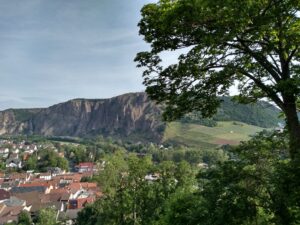
In the afternoon, we broke up into smaller groups to discuss specific themes in more detail. I first attended a session led by Sandra Lustig on working in teams; this is something I rarely do, and some of my experiences have been less than positive, which is why I was interested in talking to colleagues about the topic. Sandra had some very useful advice about the frameworks to put in place before collaborating with others. This was then followed by a delightful session discussing the multiple ways of translating the German word “Geist” and its derivatives – Bronwen Saunders had prepared a worksheet containing various examples for us to get our teeth into, from a description of Frederick the Great’s sister Wilhelmine as “geistvoll” and of Martin Luther as an “ächter [sic] deutscher Geist” to the “geistige Kraft” Goethe ascribes to plants in his plant morphology and the Swiss concept of “geistige Landesverteidigung”. One-size-fits-all solutions were definitely not appropriate here!
The group then reconvened for a final debate on the differences between German and English academic writing. Plenty of challenging questions arose here, too – should differences between the German-language and “Anglo” traditions be retained or reduced? To what extent are linguistic differences indicative of cultural differences? And how to deal with typical “Denglish” phenomena, such as nominalisations, treating uncountable nouns as countable, and the misuse of “so-called” and “respectively”? The enthusiasm with which these issues were discussed showed just how much we all relished having the opportunity to talk about them with a group of peers – as one of us put it, “fellow nerds” – rather than wrestling with them on our own!
The main part of the workshop ended after this discussion, but some of us had not had enough and took ourselves off to a local Straußwirtschaft to continue the conversation over some local wine. The next day many of our group chose to stay on a little longer and take part in another hike, this time up the Rotenfels, the highest rock face between the Alps and the North Sea. The sun shone and the exercise was the perfect counterpart to the intense thinking we had done for the past two days! Overall, I found the workshop immensely enjoyable and inspiring and am hugely grateful to Ellen and Sarah for organising it. Let’s hope it’s not too long before we academic translators have the opportunity to get together once more!
